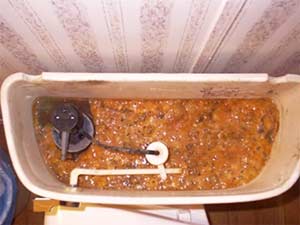Primary documentation of the effects of strip-mining for coal on a West Virginia community. Gas Drilling and Strip-Mining affect communities health. This website is an outstanding example of the human aspect of sacrifices for energy and power production that may not be necessary.
Aurora Lights supports locally-based projects that strengthen the connections within and between human communities and their natural environment by promoting environmental and social action. See also: Aurora Lights Home.
“What we got going on here in Rock Creek is a little school in Sundial, W.Va., called Marsh Fork Elementary and it's being surrounded by a coal mining processing plant and a toxic waste impoundment and also a mountaintop removal site,” said Rock Creek resident Ed Wiley. He used to work at the processing plant and his granddaughter, Kayla, attended Marsh Fork Elementary.
The toxic waste impoundment and processing plant are all operated by the Goals Coal Co., a subsidiary of Massey Energy. The 1849-acre mountaintop removal mine that surrounds the school and dam is operated by two other Massey subsidiaries, Independence Coal and Alex Energy.
See: Code Black: Coal’s Assault on America’s Health Campaign | PSR (Physicians for Social Responsibility)
"The West Virginia coalfields contain some of the highest quality water in the world. Aquifers in the coalfields often sit directly below seams of coal. When the coal seam is undisturbed, it acts as a giant carbon filter, leaving excellent water quality that West Virginians across the state rely on for drinking water.
When coal seams are disrupted, however, water quality quickly declines. The accounts of impaired water quality in the coalfields are abundant. As mining continues and practices such as slurry injections and impoundment sites become more prevalent, communities are seeing a decline in their water quality.
One woman from Hopkins Fork had her water tested when she moved into her home in 2002 and was told it was of spring water quality, as good as any you could buy. Today, she does not even use the water to brush her teeth...

...In total, several hundred million gallons of coal slurry were injected underground within 3 miles of the nearest well user. Some residents suspect that the heavy blasting at the Black Castle Surface mine cracked the geologic layers allowing the coal slurry to enter the water table.
Environmental Engineer Dr. Scott Simonton agrees this is a plausible scenario. Despite repeated requests by residents and citizens groups, the West Virginia Department of Environmental Protection still refuses to study the water in Prenter to determine the source of the contamination."
Aurora Lights supports locally-based projects that strengthen the connections within and between human communities and their natural environment by promoting environmental and social action. See also: Aurora Lights Home.





